

Discover more from The Cottage
We’re midway through back-to-back political conventions - and faith and politics has emerged as a hot topic for both Democrats and Republicans. Some observers were surprised at how much emphasis the Democrats put on religion last week; no one will be surprised when the GOP does the same - or more - in upcoming days.
There are two primary forms of analysis regarding religion and politics: first, conceptualizing religion as God-talk (prayers, scripture quotes, testimonies); and second, seeing religion as a form of identity (sociological labels like “white evangelical,” “Hispanic Catholic,” or “black Protestant”). Democrats have often avoided God-talk but have built religious coalitions across racial and theological lines; Republicans love God-talk but have increasingly limited their religious constituency by race to white evangelicals and Catholics.
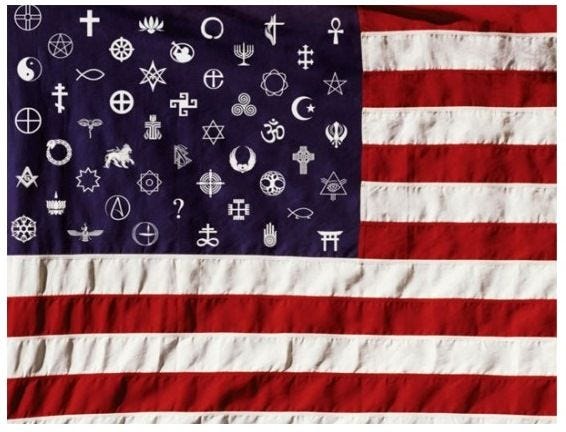
However, it isn’t particularly helpful to say, “There was a lot of religion at the DNC” or “Republicans speak to their white evangelical base.” What does that really tell us about what people believe and how they act? Not much. The categories we have are mostly about messaging and targeting, not about the interplay of faith and politics.
The questions should not be: Was there religion at the political convention? Which groups will vote for which party? Rather, the questions should be: What kind of religion was at this convention? How does that influence America’s political vision?
To help with these questions, I’ve developed a religion and politics field guide. It is framed around five poles of religion: community, faith, ethics, orientation, and voice.
RELIGION AND POLITICS: A FIELD GUIDE
Community: Includes – Excludes
The question of community is: Who counts? Who counts as fully human? Who counts as a citizen? Religious groups veer toward different poles – ones with low boundaries for entrance and easy participation, and ones with strong borders and strict commitments. “We” communities or “us versus them” communities. Is the vision of community an open table or a club for members? The former tends to unify and welcome; the latter divides and delineates.
Faith: Humility – Certainty
Faith is central to religious traditions, but not all religious people understand faith in the same way. Some insist that faith includes room for doubt and unanswered questions, while others define faith as right belief and certain truth. Is faith seen as a process or journey toward that which is mysterious and unknown, or is it understood to be assent to specific doctrine or dogma with a sure conclusion?
Ethics: Mercy – Judgment
When it comes to ethics, there is often a tension between mercy and judgment. While most religious traditions insist that compassion and justice are interrelated, most Americans define mercy in terms of leniency and judgment as punishment. Which, then, is privileged: Compassion and empathy or law and order? “There but for the grace of God, go I” or “People get what they deserve”?
Orientation: Future – Past
Religion speaks to time – past, present, and future. But it often prioritizes past and future. Some emphasize the coming kingdom of God, enlightenment, shalom, or a just society; and others see religion as the “faith of our fathers,” or as a lost age of innocence or glory. Those who emphasize the future see the present as an opportunity to correct past mistakes to move ahead; those who emphasize the past often see the present as a threat to fidelity and a time to ward off or prepare for a pending apocalypse.
Voice: Prophetic – Priestly
This is a classic pole in analyzing religion and politics – prophets challenge and priests comfort. The prophetic voice takes on unjust systems, structures, and powers. The priestly voice affirms the goodness of the nation and its essential mission, offering assurance in times of trouble. Prophets call down fire; priests bless.
I know: these are binary poles with many both/ands. Yet, each pair invites us to consider where we - or those with whom we differ - fall on a spectrum. It serves as a device, an “explainer,” intended to clarify issues and then raise better, more nuanced questions. This categorization quickly identifies a surprising role-reversal playing out in this year’s election. In one category – and only one – Democrats are acting like Republicans and Republicans like Democrats.
Last week, the Democrats modeled inclusive community, the journey of faith, compassionate ethics, and a more just future – exactly as one would expect. Interestingly – and this is what confused viewers – it was not primarily prophetic (as Democratic conventions typically are). It was priestly. There were prophetic moments around issues (mostly race and voting rights) and, especially, in the speeches by Michelle and Barack Obama. But Joe Biden’s campaign is that unity-in-diversity, humility, compassion, and a more just and equal nation is not a challenge but a comfort – an affirmation and blessing of what America can be.
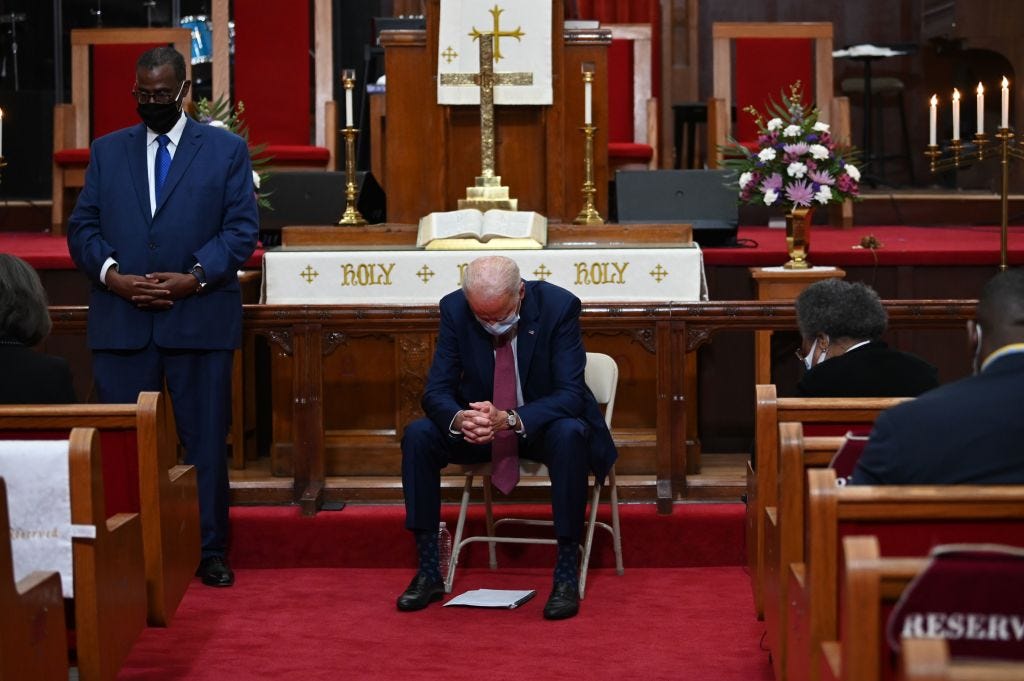
This week, the Republicans will offer the opposite – a secure community, certainty, law and order, and nostalgia – that is the religious vision of the GOP, a picture of a safe, family-oriented nation. The twist is that this year it will be prophetic. Trump will be calling down fire. America is threatened by unhinged and evil powers, aided by an corrupt system (the “deep state”) and unjust structure (“globalism”), and its existence hangs in the balance. Trump is running as an incumbent Howard Beale, the mad prophet of the White House – warning of an impending socialist apocalypse. Trump challenges the faithful to rise up, defeat the enemy, and restore an American Golden Age.
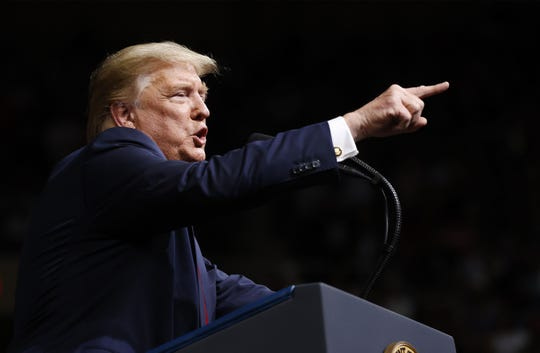
Keep these categories in mind in the upcoming weeks. Community, faith, ethics, orientation, and voice. Perhaps the most important is the last: Democrats seem to believe that a comforting faith of understated decency appeals to weary voters during a pandemic and economic crisis; Republicans think suburban housewives will be swayed by a Bible-waving, fence-building prophet.
You’ll see these themes in the conventions and campaigns, but more importantly, these poles shape our larger vision of who counts, how we keep faith, what is good and just, where hope lies, and how we tell America’s story. Religion and politics isn’t just for election years, it is always with us.
THE COTTAGE publishes each Monday and Thursday, with occasional weekend specials, alternating between commentary on religion and culture and inspiration for a more meaningful faith - all from an unexpected point of view. Subscribe for free and never miss an issue.




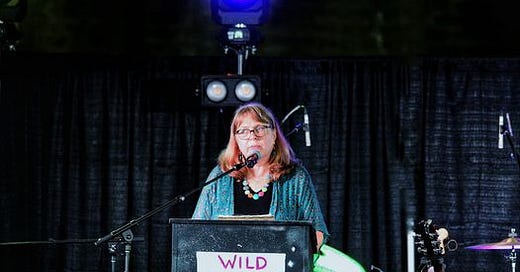



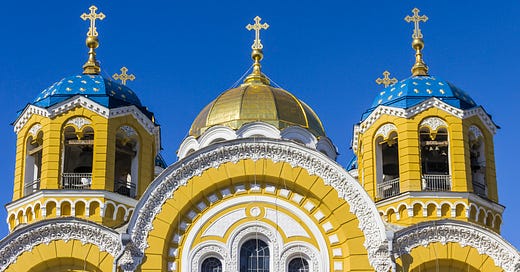

Diana-
I am grateful to you for your essay, as I have been hoping for a way to deconstruct all that has happened regarding the marriage/divorce of politics and religion. Your commentary lifted me and your words were what I longed to say- I just have not been able to sort through all the junk out there. These uncertain times and the forces of evil and division force me to speak up and become more active in my community, both in conversation and in service. As the Republicans meet this week, I expect to hear too many threats of what will happen if Trump is not reelected. I also imagine there will be awful rhetoric against anyone not white, privileged, and male, with asides to tempt women and other minorities to believe the lies told by the far right. I will not give up my hope for all that can happen in our country, neighborhoods, and families, as I am buoyed by the message of the Democrats. As a mature believer, I know that blessings are better than empty, fiery threats, and I look forward to that time when the compassion of Jesus, the open arms to embrace each person, and the love we share with each other will triumph. Thank you again for your shared words; I will be reading this again and again.
Diana
As always you guide us in viewing our ideals with new Lens. You are right the Democratic convention was comforting. They told what changes were needed, but not ways they could assure us that if elected they could accomplish what is needed.
This is what happened with Obama.
I was so inspired by each moment, but is that enough?
What we need is to vote out some in congress.
Bette Mulley